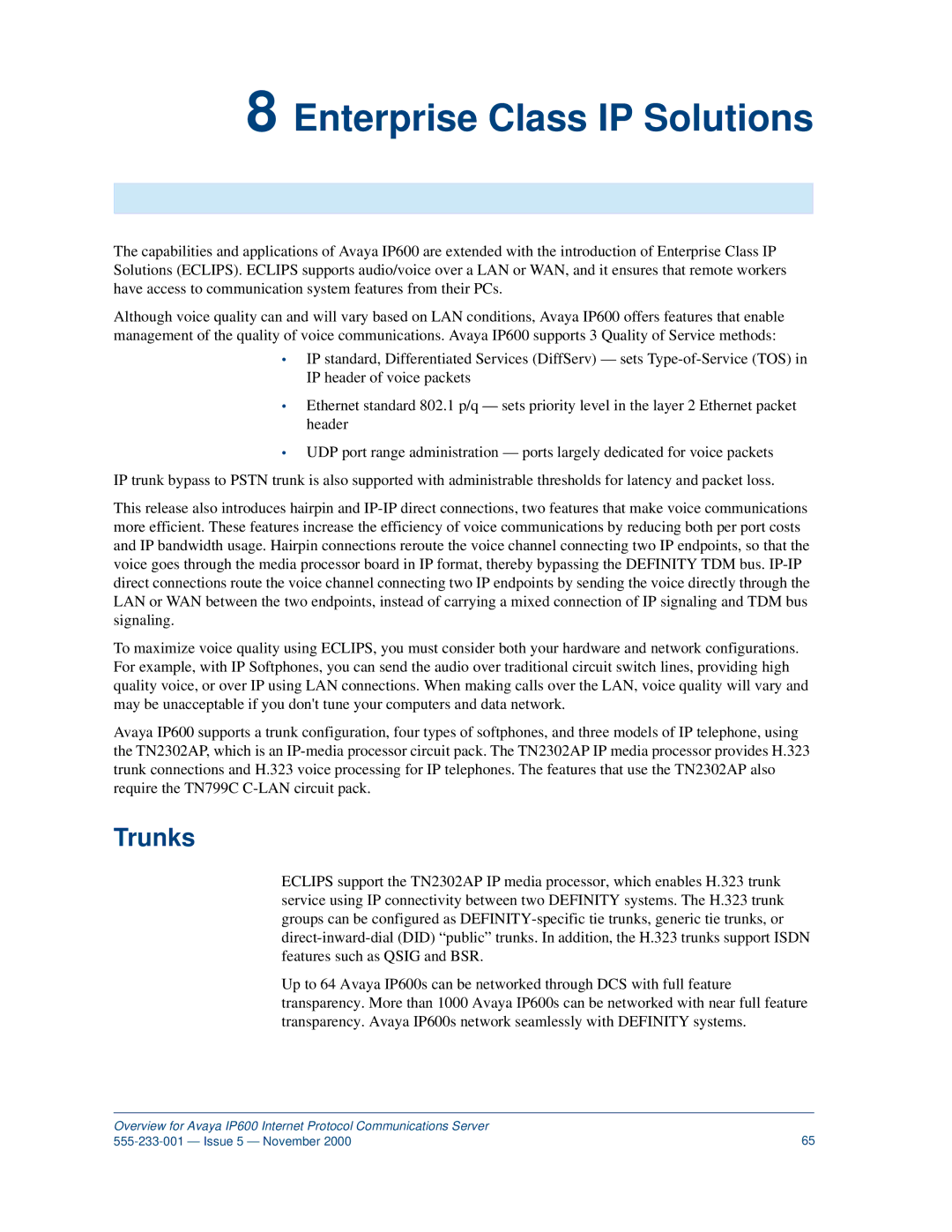
8 Enterprise Class IP Solutions
The capabilities and applications of Avaya IP600 are extended with the introduction of Enterprise Class IP Solutions (ECLIPS). ECLIPS supports audio/voice over a LAN or WAN, and it ensures that remote workers have access to communication system features from their PCs.
Although voice quality can and will vary based on LAN conditions, Avaya IP600 offers features that enable management of the quality of voice communications. Avaya IP600 supports 3 Quality of Service methods:
•IP standard, Differentiated Services (DiffServ) — sets
•Ethernet standard 802.1 p/q — sets priority level in the layer 2 Ethernet packet header
•UDP port range administration — ports largely dedicated for voice packets
IP trunk bypass to PSTN trunk is also supported with administrable thresholds for latency and packet loss.
This release also introduces hairpin and
To maximize voice quality using ECLIPS, you must consider both your hardware and network configurations. For example, with IP Softphones, you can send the audio over traditional circuit switch lines, providing high quality voice, or over IP using LAN connections. When making calls over the LAN, voice quality will vary and may be unacceptable if you don't tune your computers and data network.
Avaya IP600 supports a trunk configuration, four types of softphones, and three models of IP telephone, using the TN2302AP, which is an
Trunks
ECLIPS support the TN2302AP IP media processor, which enables H.323 trunk service using IP connectivity between two DEFINITY systems. The H.323 trunk groups can be configured as
Up to 64 Avaya IP600s can be networked through DCS with full feature transparency. More than 1000 Avaya IP600s can be networked with near full feature transparency. Avaya IP600s network seamlessly with DEFINITY systems.
Overview for Avaya IP600 Internet Protocol Communications Server |
|
65 |
